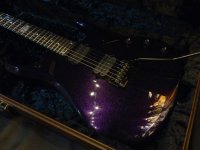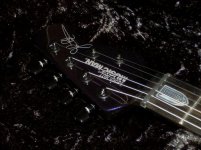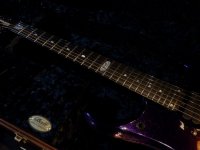Jeong
Well-known member



So I'm about to pull the trigger on this used JPX. It's been my dream guitar for a while.
I've eaten canned chicken and cheap rice to save up enough money. I've been working extra hours 7 days a week for a while to help save up as well. I also sold my beloved, but slightly neck warped JP6.
I just had some quick questions before i buy:
I'm looking to play modern metal with this guitar. I can think of a few people who used a jpx in modern metal. (Mark Holcomb and Intervals). Do you think the JPX can do a good job with this genre?
I'm not concerned with tuning stability, I'll most likely put 5 springs in the back for added stability.
The most important factor for me is reliability. Other JPX owners out there, do you notice any issues with neck warpage? Or constant need for truss rod adjustments? I would figure that a painted/finished neck would have less issues with warpage, but want to hear from other owners.
My other guitar has 2 titanium rods running down the neck, and i've never needed to adjust the truss rod.
I'm planning to keep this guitar in the case while not playing it, but i will need to put it into a gig bag and travel around the city at times for practices and gigs. This means big variations in temperature from the hot and very humid summer to the cold and dry winter.
Also, is the guitar neck-heavy in any way? I owned a chambered Les paul doublecut that was a bit neck heavy and just couldn't get on with it. I tried the JPX several times in stores but never while standing up.
One more question. How does the guitar respond to wear and tear? Does the finish dent or chip easily? Do the frets wear down quickly? (My jpx will most likely have the old nickel-silver type frets). Does the black hardware on the bridge or tuners wear and show silver underneath?
Thank you!


